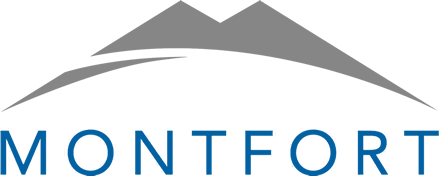Many years have passed since Brexit, and clarity is slowly returning around cross border financial service regulation. On December 21, 2023, Switzerland and the UK signed a mutual recognition agreement for financial services, through recognition of equivalence of national legislation and regulations in banking, investment services, asset management and insurance. The aim of the agreement is to enhance collaboration between the two countries, all the while guaranteeing client protection. For Switzerland this is excellent news, providing a strong partner with a large financial market outreach. The positive ramifications of this agreement, which extend well beyond Switzerland’s borders, are worth understanding.
Switzerland has strived to align its regulations with the European Union, but achieving EU equivalence recognition of its financial regulatory framework is far from being a reality. At times this has left Switzerland isolated in the middle of the EU since its refusal to join the Union in 1992. The UK-Swiss agreement marks a vital step towards financial reintegration. Pending parliamentary approval in both countries, it will enable reciprocal provision of financial services. Additionally, the intent is to cooperate in the areas of regulation and surveillance, providing relief from the stringent and often cumbersome EU rules.
Switzerland’s reputation for stability and innovation makes it an appealing financial hub. This regulatory cooperation heralds a synergy of UK’s progressive financial services and Swiss expertise, opening new avenues.
Together, Switzerland and the UK create a strong, sizeable, and accessible marketplace. For Switzerland this agreement is an important step internationally and shows the willingness of the government to continue playing an important role in financial services and the opportunistic nature of a small but very wealthy country.
Market size
The Swiss wealth management market is estimated to be approx. CHF 5 trillion, for 2024 according to Statista.com. Swissbanking’s data show Switzerland as a global leader in cross-border wealth management with approx. 60% of foreign private assets. Developing a fund-raising strategy to target this market has high potential through its size but also through the diverse composition of the investor types. A fund-raising strategy that would also include the UK (approx. USD 9.57 trillion projected for 2024 by Statista.com) gives access to a combined huge investor base and should raise interest from numerous investment management firms.
The European Union faces harmonization challenges. The AIFMD directive, subject to varied transpositions by member states, creates uneven market access. For investment managers based at a distance from Europe, initiating fund raising efforts in the region is often met with apprehension pertaining to navigating a potentially large market, but with myriad of regulatory hurdles, markets of varying sizes, investor types, not to mention languages. This complexity can deter investment managers from engaging with the EU markets, particularly if one does not yet have previous experience in the region. Relying on reverse solicitation as a fund-raising strategy to avoid the regulatory hurdles, as has been done by many over time, is a strategy with very little scope for growth and carries increasing amounts of regulatory risks.
The Good News
Post-Brexit, the UK has maintained open access to its professional investor market with clear rules. The Swiss institutional and professional investor market is also easily accessible, with some regulatory requirements that need to be adhered to. Together, they represent a significant investor pool, enabling a comprehensive European marketing strategy without initially delving into other EU markets.
For a US-based investment manager for example, looking to set up a permanent presence in the region, the agreement between the UK and Switzerland is good news. By setting up in the UK, in a similar culture and language, the mutual recognition allows access to the two largest wealth management markets in Europe. Regarding the European Union, regulatory solutions can then be looked at to access the most interesting pockets of institutional and professional investors that are present across the most accessible European territories, such as the Nordics.
Mont-Fort has developed a practical and pragmatic range of services to assist you in developing and implementing your European and Swiss fundraising strategy. Please reach out if you would like to learn more.
Anne-Cathrine Frogg
Managing Director, Mont-Fort Funds AG








